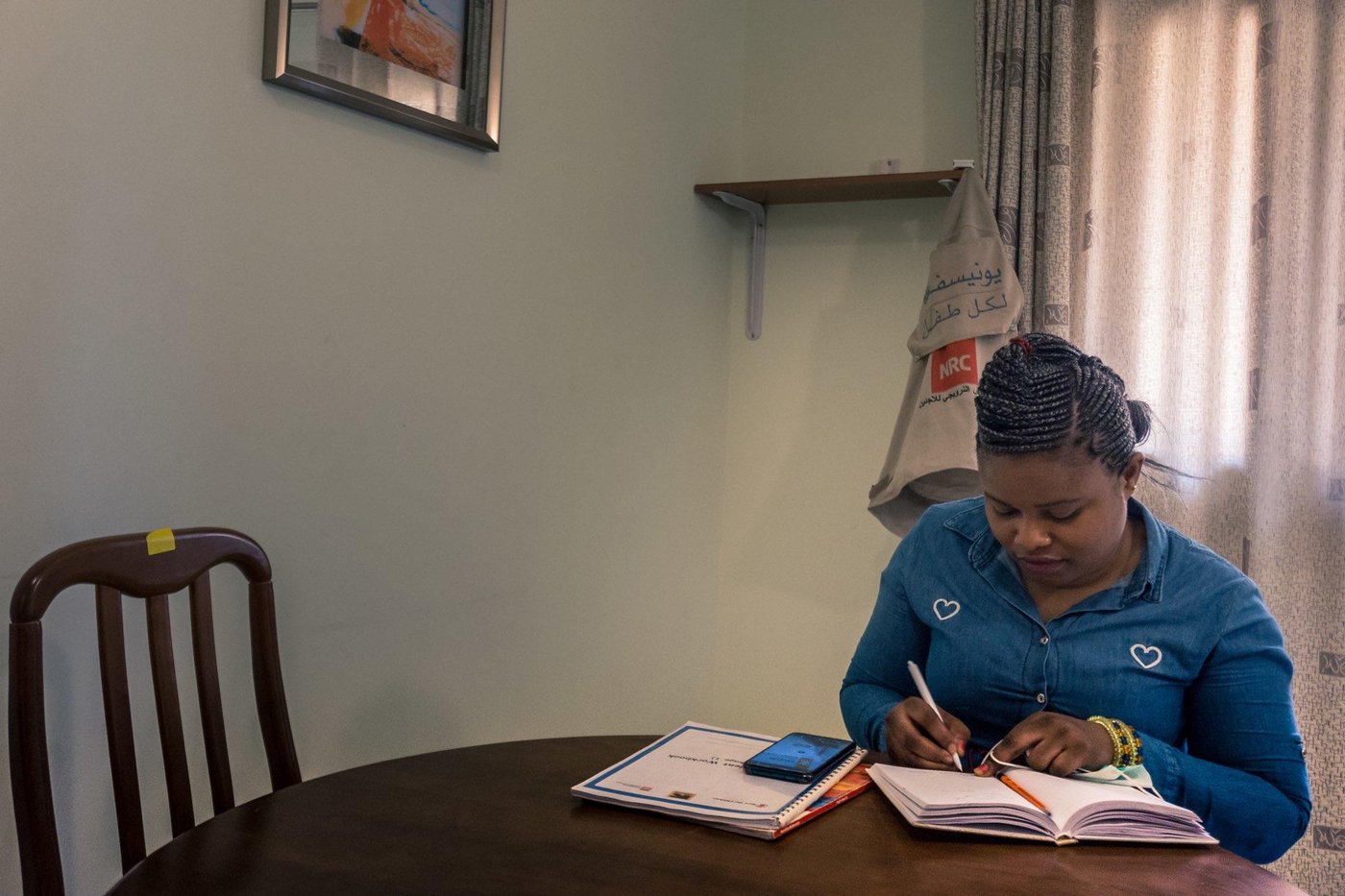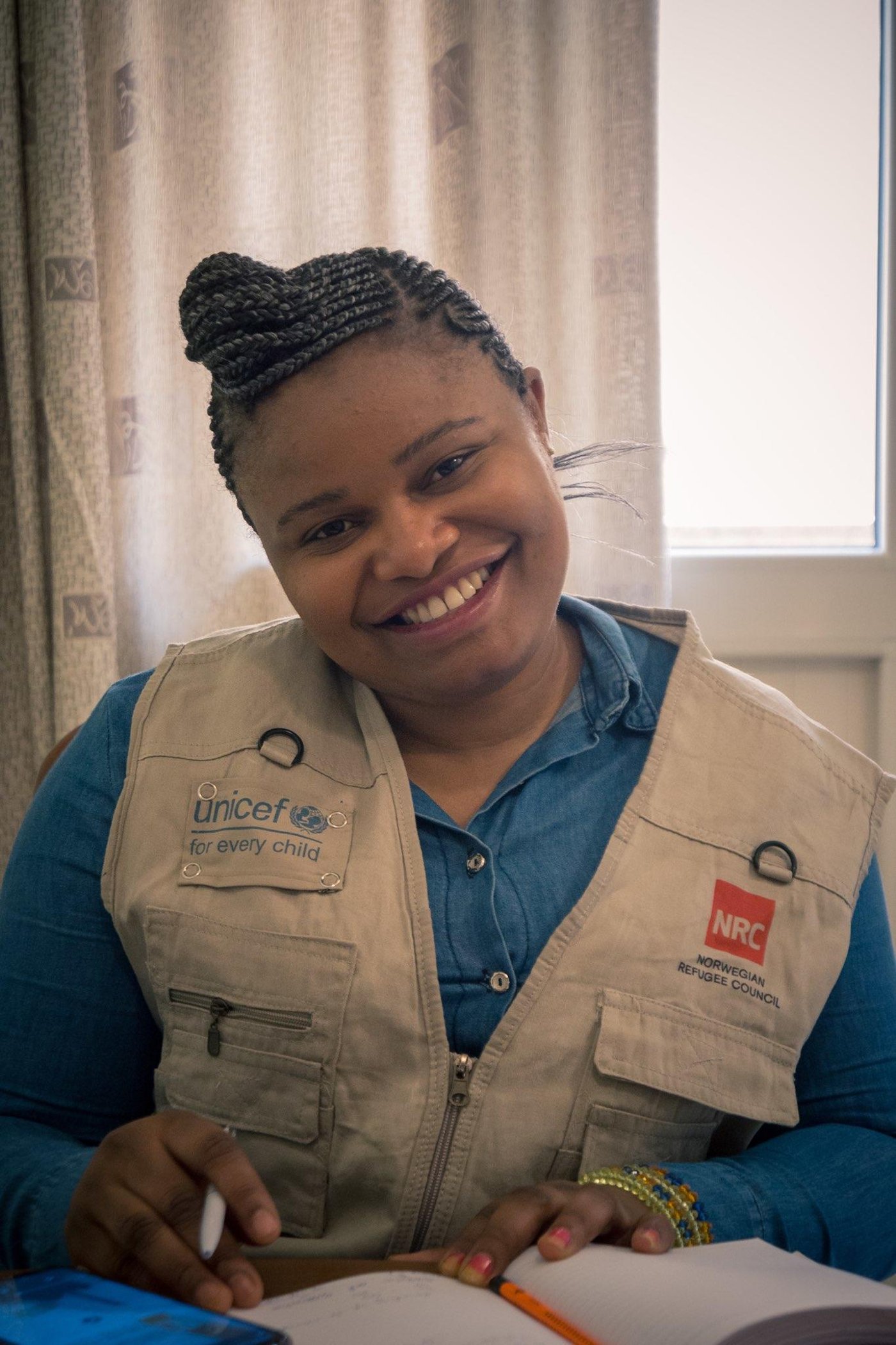“I crossed the desert for miles, following the footsteps of my friends in search of a better life in order to send money for my son’s education in Nigeria.” Bridget recalls her first steps towards a new life.
After her husband passed away, Bridget had to work multiple jobs to support her family. But being a single mum threw her into financial strain. “I reached a point where I would work more than three shifts a day in order not to work the next day, so I could spend time with my family,” recalls Bridget, her voice full of sadness.
Life was a constant struggle for survival and she feared she would be unable to support her son. Bridget had always dreamed of becoming a mechanical engineer, but due to the hardships she faced, she had to take a different path. She eventually made the impossible decision to leave Nigeria and her beloved 11-year-old son. She headed to Libya where some of her friends and family had already moved.
Turning a job into her passion
Before she came to Libya, Bridget worked for two years as a maths and English teacher at a primary school in her home town in Delta State, Nigeria. Back then, she saw it primarily as a source of income. Upon her arrival in Libya, she worked as a cleaner for two months. Then, one Sunday morning, a church friend informed her about a teaching position that had become available at the Norwegian Refugee Council (NRC).
“I never thought that one day teaching would become my passion, until I saw the smiles of the children. I realised that I could give them hope.”

Since the outbreak of the global Covid-19 pandemic, Bridget has been working as a maths teacher in NRC’s distance learning programme, teaching children from different African communities.
This programme had Bridget swim upstream in unfamiliar waters, being quite different from the face-to-face teaching she was used to. However, she has come up with some creative ways to engage her students.
As a choir performer, Bridget is now using singing to shape her teaching style and help to give her students hope. She firmly believes that children respond to singing differently than speaking, and that singing can calm anger and relieve stress.
“In these times, I put my efforts into providing warmth, love, and care.”
Creating a safe environment in the classroom
Bridget understands how Covid-19 and the conflict in Libya affect African migrants, especially children. Some of the children she teaches have experienced death, violence, separation from family and insecurity. Even those fortunate enough to find safety often face further hardship or discrimination. Through singing and applying NRC’s psychosocial activities, Bridget is able to create a safe classroom environment, in which students feel cared for, supported, engaged and stimulated.
Motivated by her experience, and with the schools being also closed in Nigeria, Bridget is currently working on providing her son with the technological tools he needs to enroll in her distance learning classes. This allows her to support him educationally and emotionally as well as financially.
“I can’t be there for him to teach him in person and help with his lessons, but I can be his distance teacher,” she says.
As a result of the Covid-19 pandemic, schools in Libya formally closed their doors on 15 March 2020. In order to ensure that children still have access to quality, safe and inclusive education, in less than a month, the NRC Libya education team established and maintained a connection to learning and well-being for more than 2,450 students in grades 1-6 from the Libyan, Arabic-speaking non-Libyan and the African migrant communities.


